Hey there! We all make mistakes, and sometimes, words slip out that can hurt others. If you've found yourself in a situation where your language offended someone, crafting a sincere apology can go a long way in mending fences. Let's explore how to express heartfelt regret and rebuild relationships in a thoughtful letter. Curious to learn how to phrase your apology effectively? Keep reading!

Sincere apology and acknowledgment of offense
Using offensive language can significantly impact relationships and create an uncomfortable environment. Recognizing hurtful words, individuals must reflect on the context and emotional weight behind their language. Disrespectful remarks, particularly in workplace settings like corporate offices or educational institutions, can lead to misunderstandings and conflict. Apologizing sincerely involves acknowledging the offense, expressing genuine regret, and committing to more respectful communication in the future. Organizations with diversity and inclusion policies often emphasize the importance of maintaining a respectful dialogue, thus holding individuals accountable for their language choice.
Explanation of intent without making excuses
Using offensive language can profoundly impact relationships and environments, signaling a lack of respect and understanding. Acknowledging this, I recognize my words (specific terms) during the conversation on (specific date) in (location/event) were inappropriate and hurtful. While my intention may not have been to offend, I understand that intent does not mitigate the effects of my words. Apologizing for any discomfort or harm caused, I commit to being more mindful in the future, ensuring that my language fosters an inclusive and respectful atmosphere. Conversations about sensitive topics (like race, gender, or identity) require careful consideration, and my actions did not reflect that awareness. Growth comes from recognizing mistakes, learning, and fostering a more compassionate dialogue.
Expression of understanding the impact
Using offensive language, such as derogatory terms or slurs, can significantly harm interpersonal relationships, workplace harmony, and community trust. The impact of such words goes beyond mere communication, affecting emotional well-being and psychological safety. Individuals subjected to offensive language may experience feelings of humiliation, anger, or disenfranchisement, especially in sensitive environments like schools or workplaces. It is essential to recognize that these words carry historical weight and can perpetuate cycles of discrimination and division. Understanding the varied backgrounds of people impacted by language choices highlights the importance of fostering an inclusive culture that prioritizes respect and empathy. Engaging in self-reflection and actively seeking awareness about language use can promote healthier exchanges and contribute to a more positive atmosphere in any setting.
Promise to rectify behavior and learn
Using offensive language can cause significant damage to personal relationships and workplace environments. Individuals may feel belittled or disrespected, leading to a toxic atmosphere. Acknowledging this behavior is crucial, as it allows for the opportunity to learn and grow. Commitment to replace harmful language with respectful communication fosters a more inclusive community. Seeking resources such as workshops or counseling can aid in understanding the impact of words and developing empathy towards others. Active listening and open dialogue can facilitate healing and strengthen relationships moving forward.
Offer to make amends or engage in dialogue
Using language that offends can deeply impact relationships and communication. Offensive language, often laden with derogatory terms or insensitive remarks, can lead to misunderstandings and hurt feelings. It can emerge in various contexts, including social interactions, workplaces, or public forums. Acknowledging the harm caused is crucial, and offering to make amends fosters reconciliation. Engaging in dialogue allows for understanding differing perspectives and rebuilding trust. Communicating the intention to listen actively to grievances can signal a commitment to change and improve future interactions.

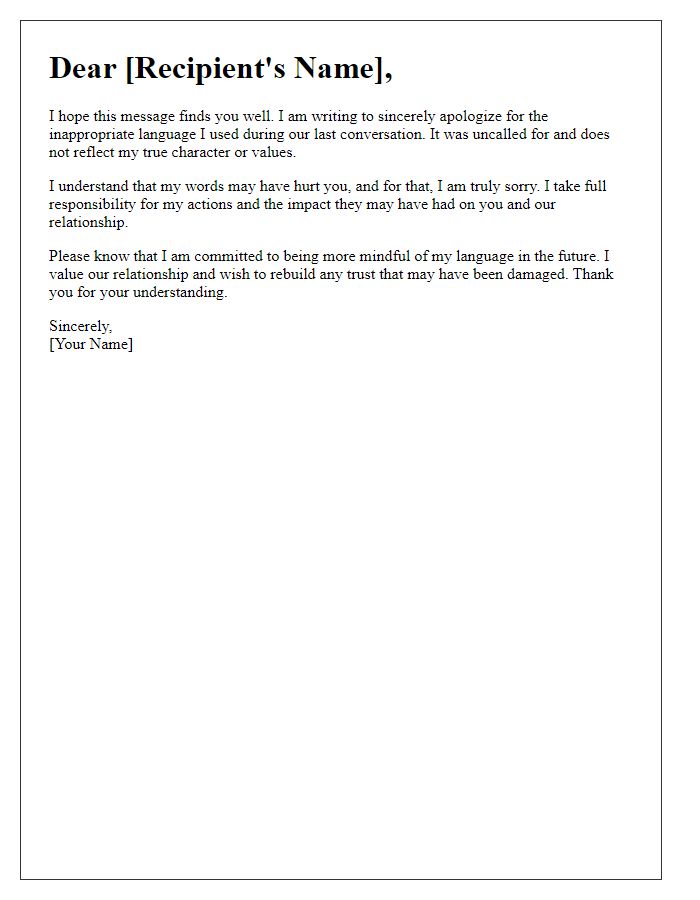
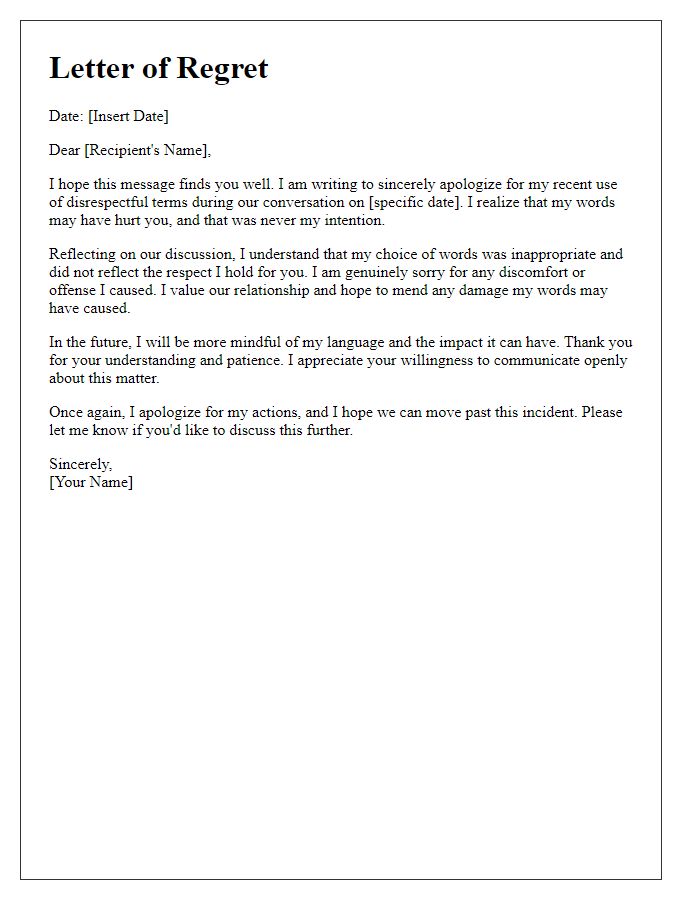

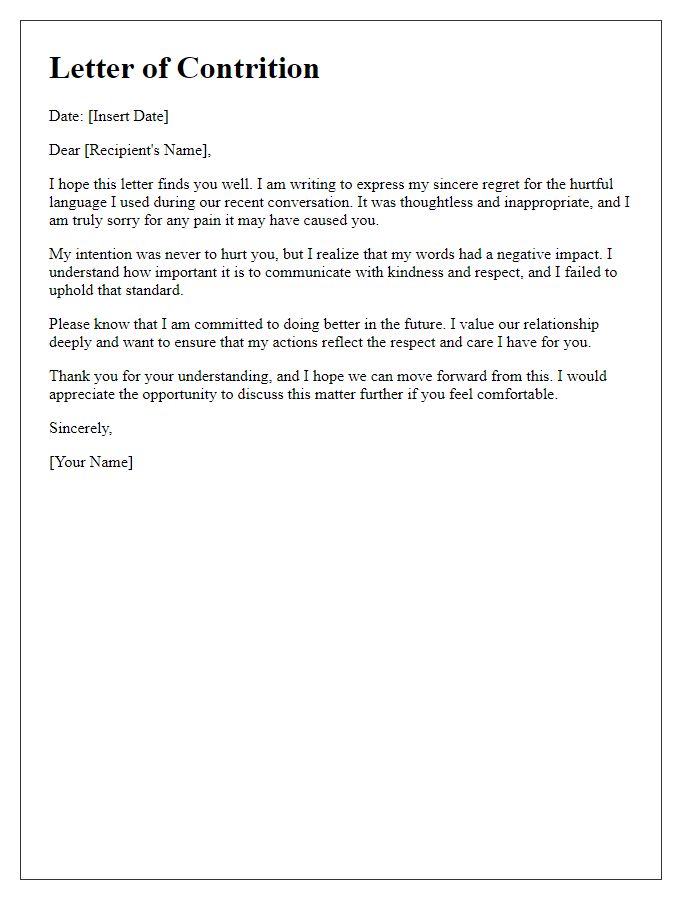
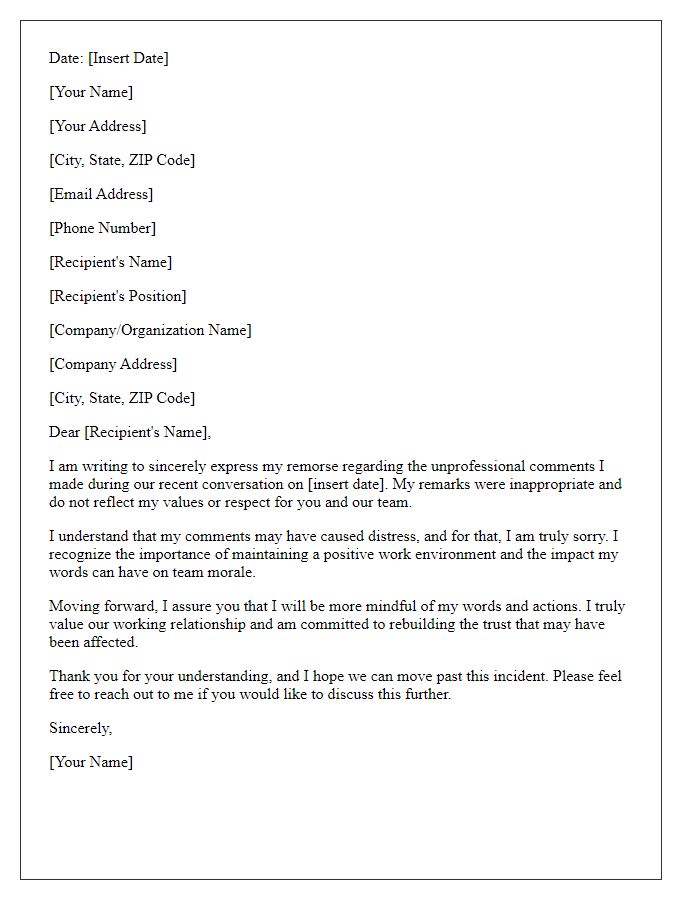
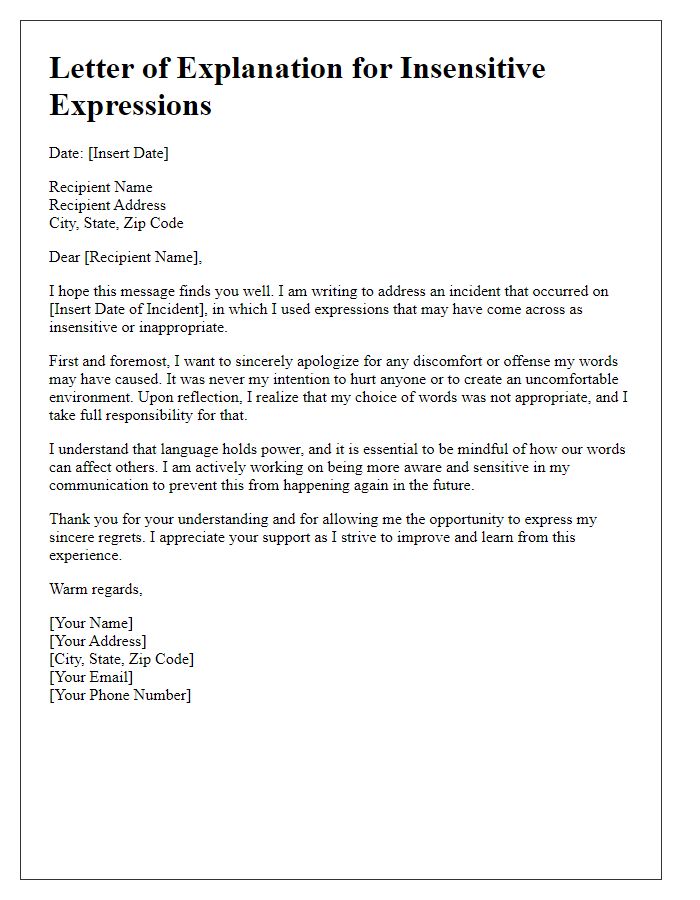
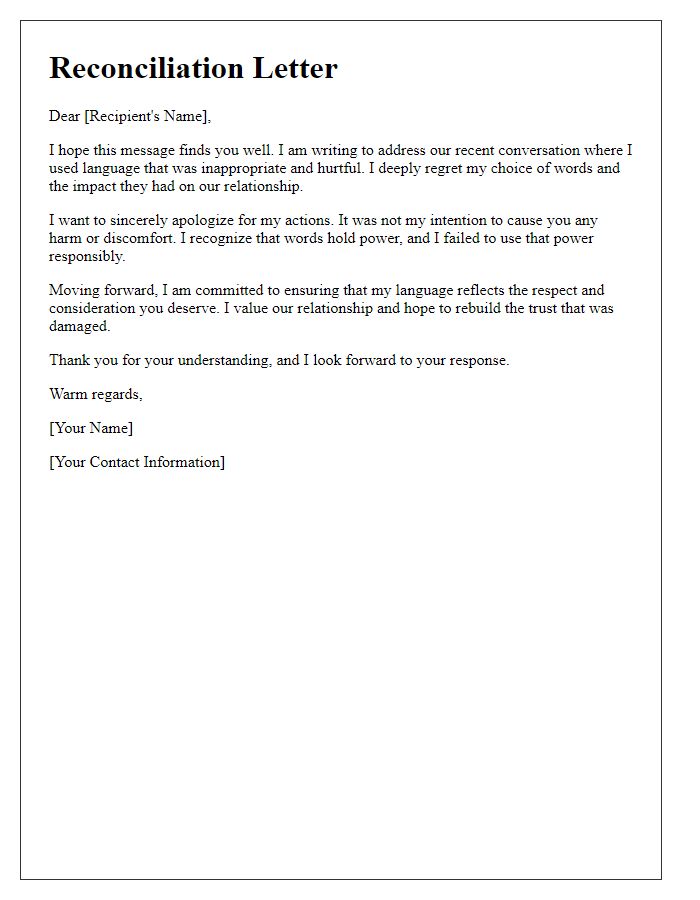
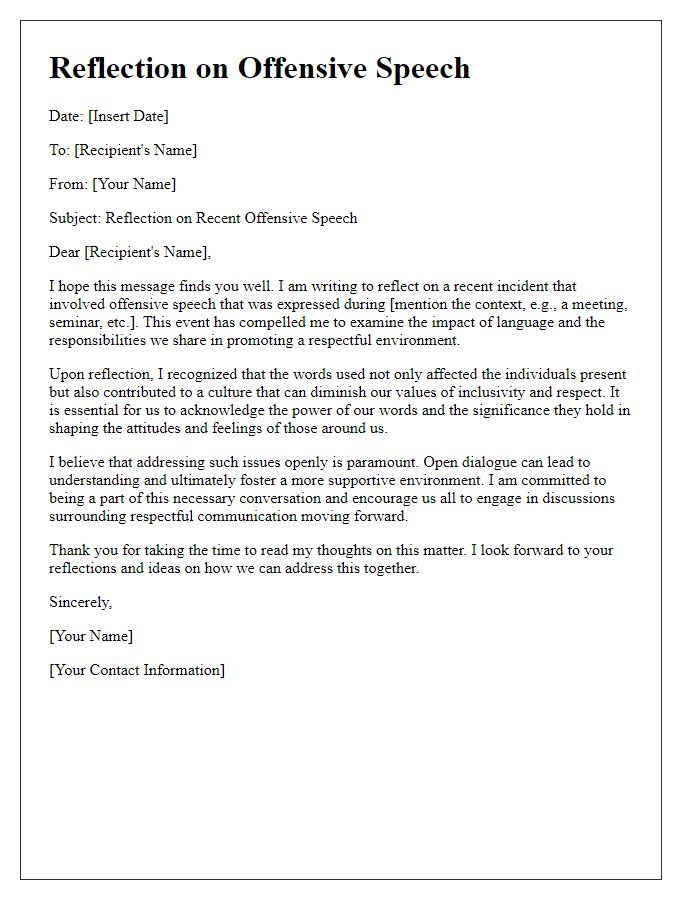
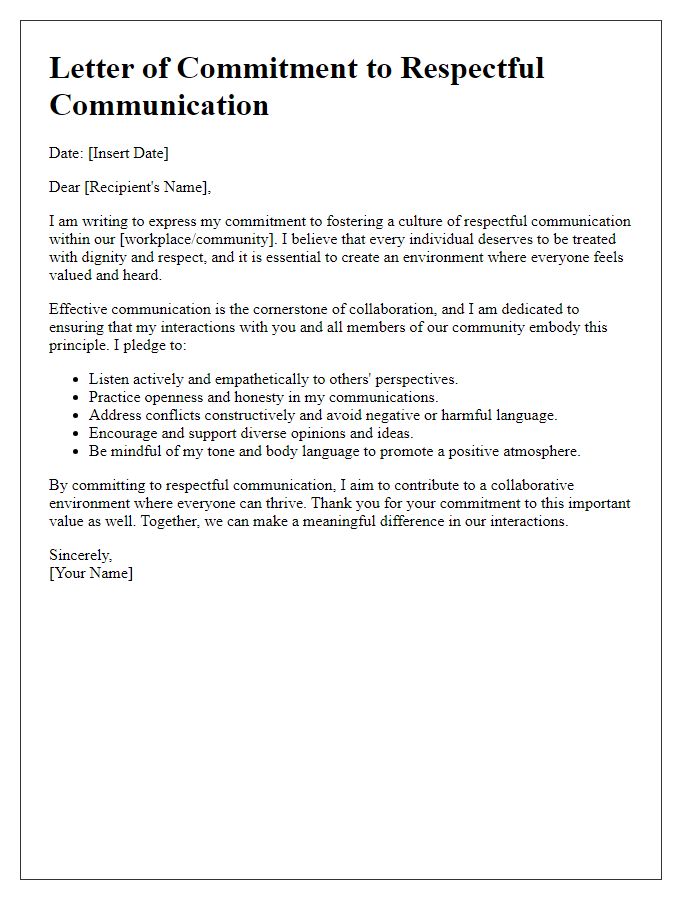
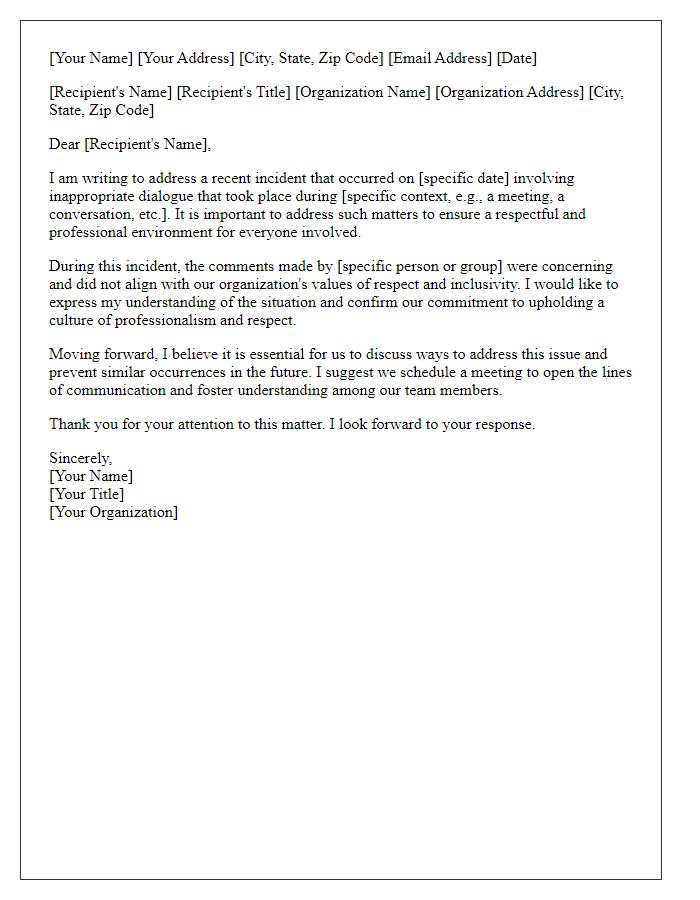


Comments